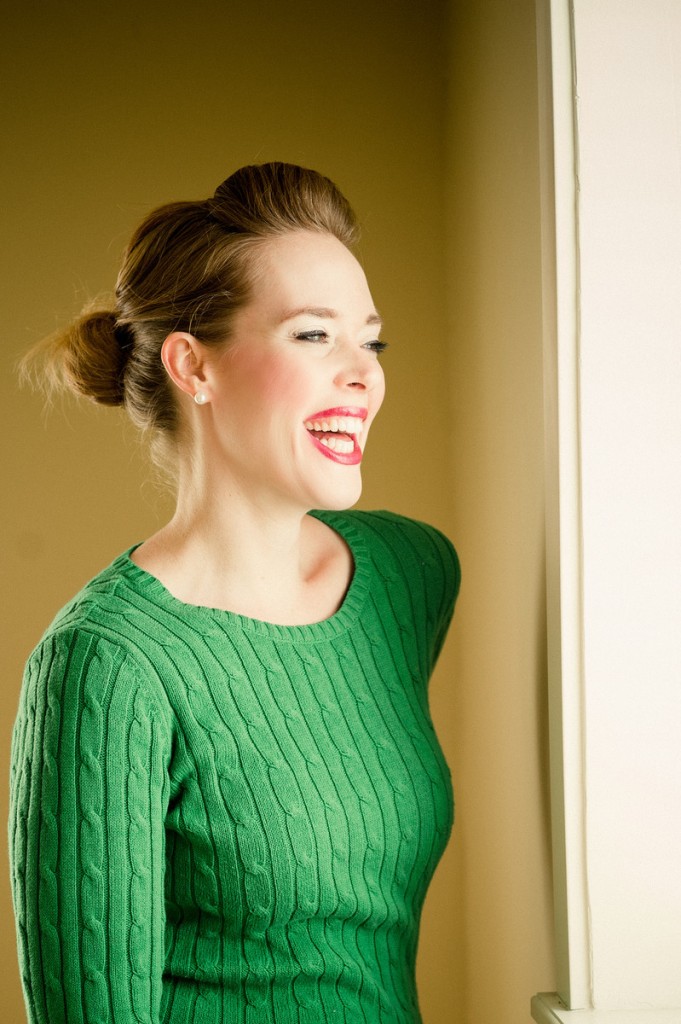Do you ever fool yourself into thinking, “As soon as life settles down I’ll be able to ___________.” ?
For so many years I functioned from this myth that peace and progress only come during calm moments. After all, isn’t that the essence of peace? The absence of chaos?
“As soon as I graduate I’ll be able to get on top of things.”
“As soon as we move…”
“As soon as I get through the holidays…”
“As soon as I finish this major project…”
“As soon as I have a job…”
“As soon as I’m successful in my job…”
“When my kids are finally in school…”
“When my kids are out of school…”
“As soon as I have more time in my schedule…”
“As soon as this problem resolves…”
The danger of this type of thinking is that THERE IS ALWAYS SOMETHING happening.
One event ends and another takes it place.
One season ends and another one begins.
Yet still, it is so easy to believe that the absence of life’s pressures is the answer to my problems.
Recently, a story was shared with me that has occupied much thought in my mind regarding the purpose of our burdens and pressures we experience in our life.
The Purpose of Our Burdens
Please allow me to share the words of David Bednar:
I have a dear friend who, in the early years of his marriage, was convinced he and his family needed a four-wheel-drive pickup truck. His wife was sure that he did not need but merely wanted the new vehicle. A playful conversation between this husband and wife initiated their consideration of the advantages and disadvantages of such a purchase.
“Sweetheart, we need a four-wheel-drive truck.”
She asked, “Why do you think we need a new truck?”
He answered her question with what he believed was the perfect response: “What if we needed milk for our children in a terrible storm, and the only way I could get to the grocery store was in a pickup?”
His wife replied with a smile, “If we buy a new truck, we will not have money for milk—so why worry about getting to the store in an emergency!”
Over time they continued to counsel together and ultimately decided to acquire the truck. Shortly after taking possession of the new vehicle, my friend wanted to demonstrate the utility of the truck and validate his reasons for wanting to purchase it. So he decided he would cut and haul a supply of firewood for their home. It was in the autumn of the year, and snow already had fallen in the mountains where he intended to find wood. As he drove up the mountainside, the snow gradually became deeper and deeper. My friend recognized the slick road conditions presented a risk, but with great confidence in the new truck, he kept going.
Sadly, my friend went too far along the snowy road. As he steered the truck off of the road at the place he had determined to cut wood, he got stuck. All four of the wheels on the new truck spun in the snow. He readily recognized that he did not know what to do to extricate himself from this dangerous situation. He was embarrassed and worried.
My friend decided, “Well, I will not just sit here.” He climbed out of the vehicle and started cutting wood. He completely filled the back of the truck with the heavy load. And then my friend determined he would try driving out of the snow one more time. As he put the pickup into gear and applied power, he started to inch forward. Slowly the truck moved out of the snow and back onto the road. He finally was free to go home, a happy and humbled man.
Our Individual Load
It was the load. It was the load of wood that provided the traction necessary for him to get out of the snow, to get back on the road, and to move forward. It was the load that enabled him to return to his family and his home.
Each of us also carries a load. Our individual load is comprised of demands and opportunities, obligations and privileges, afflictions and blessings, and options and constraints.
Sometimes we mistakenly may believe that happiness is the absence of a load. But bearing a load is a necessary and essential part of the plan of happiness. Because our individual load needs to generate spiritual traction, we should be careful to not haul around in our lives so many nice but unnecessary things that we are distracted and diverted from the things that truly matter most. (David Bednar, April 2014.)
Over Easter, my son and husband took a little road trip to visit family, leaving me FOUR WHOLE DAYS TO MYSELF.
I thrive with doses of solitude, so I was absolutely certain that miracles were going to happen in that time span.
I was going to get so much done, so much accomplished, I would solve all my problems, finish all my projects, and better yet, GET AHEAD of the game.
In essence, “my load” was being removed. Surely, this would provide the environment I needed to move forward in so many ways.
What happened surprised me.
The first twelve hours were a welcome environment of quiet. Then I started to miss my boys.
When all was said and done, I didn’t get any more accomplished with the dozen extra hours in my day than I normally did (having time constraints apparently makes me more productive). And most of all, I felt that a major part of my happiness was missing. As much pressure and stress that the high demands of having a family provide, it also brings me a connection and happiness that I just can’t experience all by myself.
What I learned:
I need my load.
I need the pressures of life to be able to progress. I need the traction it provides. As much as I have been guilty of looking at it as a barrier to my progress in the past, it is actually the very ingredient needed for my success.
Life is not solved by the absence of pressure.
Peace does not come simply by removing all burdens.
As we learn to filter our loads by only carrying what is necessary, we can work with the pressures of our life as the source of traction they were intended to be for our forward progress.
Learn to love the load.







8 Responses
Wow! This is exactly what I needed to read today. So grateful for your words of clarity.
Yup. Loved that lesson he taught and I find it sooo true too!!! ( you look beautiful!!)
aaah 🙂 Thank you 😉
Brooke, I’m so guilty of believing that once I get through this one part things will be easier next week. Sometimes things are easier the next week but I do learn so much when I’m up against a challenge. I enjoy peaceful times, times when I can enjoy the moments that are passing almost without effort. I’d like to have those moments more. 😉 When I’ve put myself on the line to make something happen, though, I rise to the challenge and learn so much more about my own depth than I typically would in my leisurely moments.
Thank you so much for this reminder, Brooke. I’m in the middle of a project and your words are great timing. xoxo
Indeed, we do need those little moments of rest, but putting off happiness or contentment for those small moments of relief doesn’t bring the result we think it will. Just as you said, you learn so much more when you rise to the challenge and you become something more in the process too!
Good luck in your fabulous project Davina!!!
So well said; this was exactly what I needed to hear. I am not kidding, it was perfect! Thanks for sharing.
I’m so glad that you enjoyed it Katie! It’s a lesson that I need again and again 🙂
Brooke,
Thanks for penning this. My wife passed it on, knowing what we’re going through in our church and business life, and I passed it on to our senior pastor. Right on the mark. Thanks for your willingness and obediance to share. A profound encouragement and confirmation.
ch: